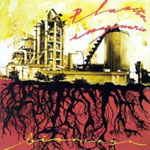Home » Jazz Articles » Album Review » Planeta Imaginario: Biomasa
Planeta Imaginario: Biomasa
Marc Capel Nadal, Planeta Imaginario's leader/keyboardist, shares writing duties with guitarist Eneko Alberdi Laskurain—whose eleven-minute title track possesses a relaxed, Afro Beat groove propelled by bassist Josep Manresa ("Manre") Zafra's percussive fretless bass and drummer Vasco Miguel Trilla Gomes dos santos's effortless polyrhythms—and Jordi Casadevall, who mastered the disc and contributes two miniature soundscape collages. Laskurain's "La caja negra" references Phil Miller's funkier side, although Laskurain's a less idiosyncratic player, with a penchant for greater abandon as the tune picks up speed. The guitarist's "Trastornos opticos del oso bipolar" closes the album on a more complex note, ranging from swinging 5/4 to its metal-meets-brass finale.
Laskurain's three compositions take up half the album's running time, but Capel's writing demonstrates the greatest diversity, challenge and emotional shifts. "El francotirador de Washington" also begins in Phil Miller territory, but dissolves into a rubato tone poem filled with lush horns, electric piano and gentle guitar. When the rhythm section enters beneath Laskurain's serpentine melody, tempos and meters shift before entering a solo section that features Capel's thread-through-a-needle changes-based melodism. Trumpeter Guillermo Villa Valdes and Zafra also get room to stretch before a complex coda that, in its unexpected lyricism, links Planeta Imaginario directly to its Canterbury roots.
"Capture" moves brightly along, but dissolves into a middle section where falsetto voices and groove meshed with sudden stop-start motifs evoke Spanish-style Zappaisms. The acoustic piano and guitar foundation of "El Teatro de llos faranduleros" is a contrapuntal neoclassical miniature that gradually turns dissonant as individual horn parts are introduced. "Hoy es un Nuevo dia," another piano feature for Capel that blends lyrical classicism with buoyant jazz-centricity, contrasts with the freely improvised intro to "L'estiu," a surprisingly dark ballad with a horn section led melodically by trombonist The-Hien Trinh before becoming another idiosyncratic but funky chart where saxophonists Rafa Gomez Lopez (tenor) and Hermann ("Mehjl") Bauerecker (alto) trade-off solo, then in tandem.
With its seemingly effortless shifts of time and feel, Biomasa is a progressive album of rare complexity, where the detailed writing and organic stylistic permutations and combinations not only feel completely natural, but inevitable. With plenty for the head and heart, hopefully Planeta Imaginario's first widely available release won't be its last.
Track Listing
Discurso cosmico desde el planeta imaginario (Cosmic Speech from the Beginning of the Planet); El francotirador de Washington (Washington Sniper); Capture (Capture); Biomasa (Biomasa); La caja negra (Black Box); El teatro de los faranduleros (Farandulero's Theatre); Discurso cosmico 2 (Cosmic Speech 2); H yes un Nuevo dia (Today is a New Day); L'estiu (The Summer); Trastornos opticos del oso bipolar (Optical Delusions of the Bipolar Bear).
Personnel
Planeta Imaginario
band / ensemble / orchestraGuillermo Villa Vakdes: trumpet, flugelhorn; Josep Manresa ("Manre") Zafra: fretless bass; Vasco Miguel Trilla Gomes dos santos: drums; Marc Capel Nadal: Hammond L100 organ, Fender Rhodes piano, Korg N5; Korg Delta, Korg MS-20, Arturia Moog Modular V2 VST synthesizers; Rafa Gomez Lopez: tenor saxophone; Eneko Alberdi Laskurian: Gibson ES 335 electric guitar; The-Hien Trinh: trombone; Hermann ("Mehl") Bauerecker: alto saxophone.
Album information
Title: Biomasa | Year Released: 2008 | Record Label: Cuneiform Records
< Previous
Concerti
Comments
About Planeta Imaginario
Instrument: Band / ensemble / orchestra
Related Articles | Concerts | Albums | Photos | Similar ToTags
For the Love of Jazz
 All About Jazz has been a pillar of jazz since 1995, championing it as an art form and, more importantly, supporting the musicians who create it. Our enduring commitment has made "AAJ" one of the most culturally important websites of its kind, read by hundreds of thousands of fans, musicians and industry figures every month.
All About Jazz has been a pillar of jazz since 1995, championing it as an art form and, more importantly, supporting the musicians who create it. Our enduring commitment has made "AAJ" one of the most culturally important websites of its kind, read by hundreds of thousands of fans, musicians and industry figures every month.




















